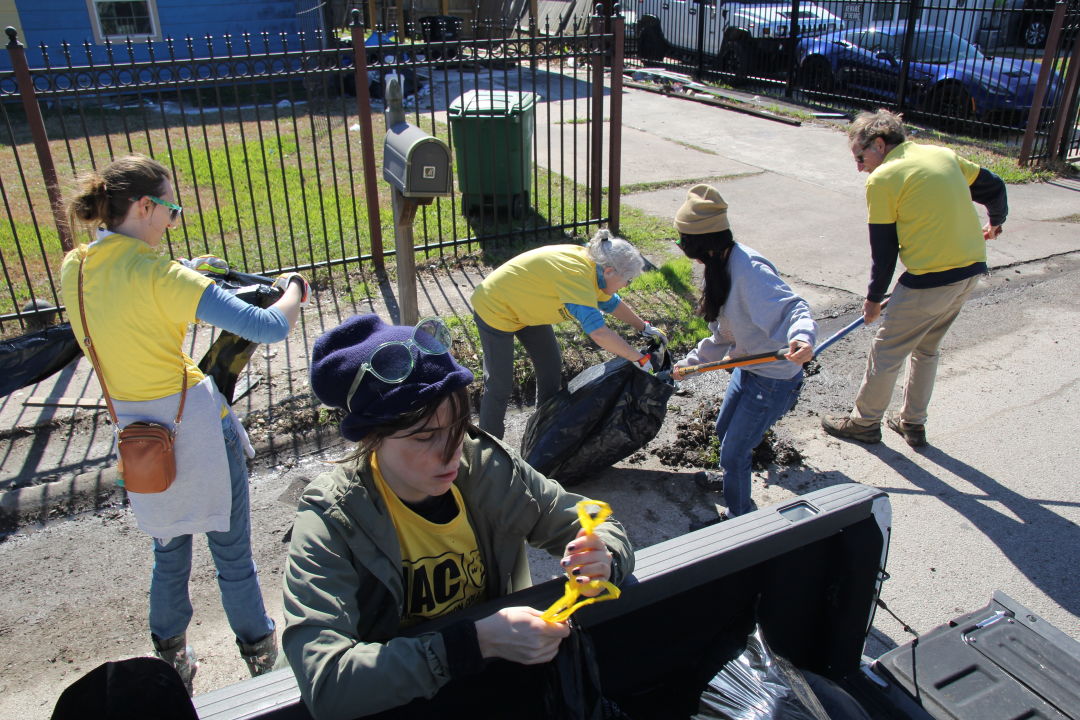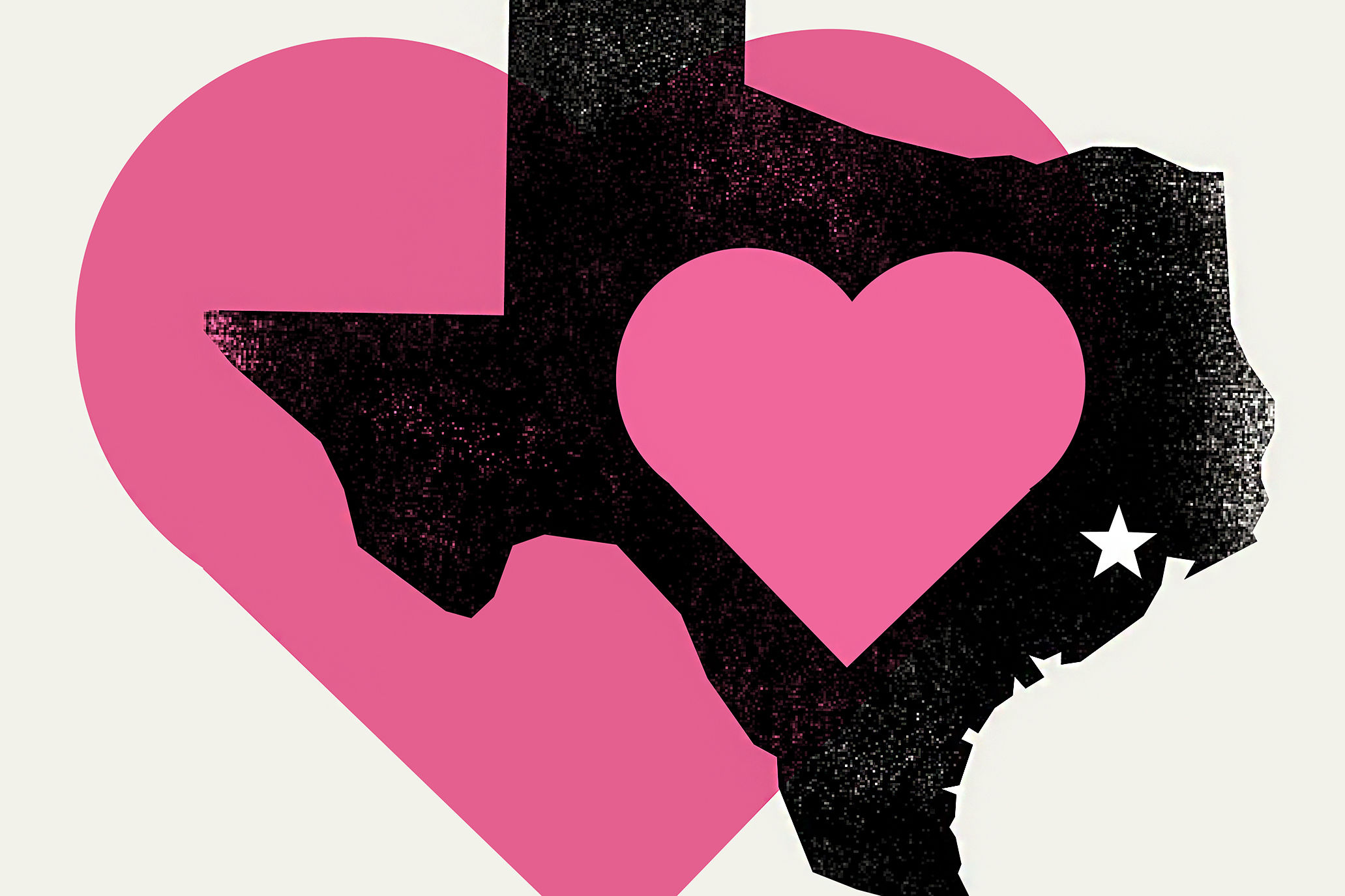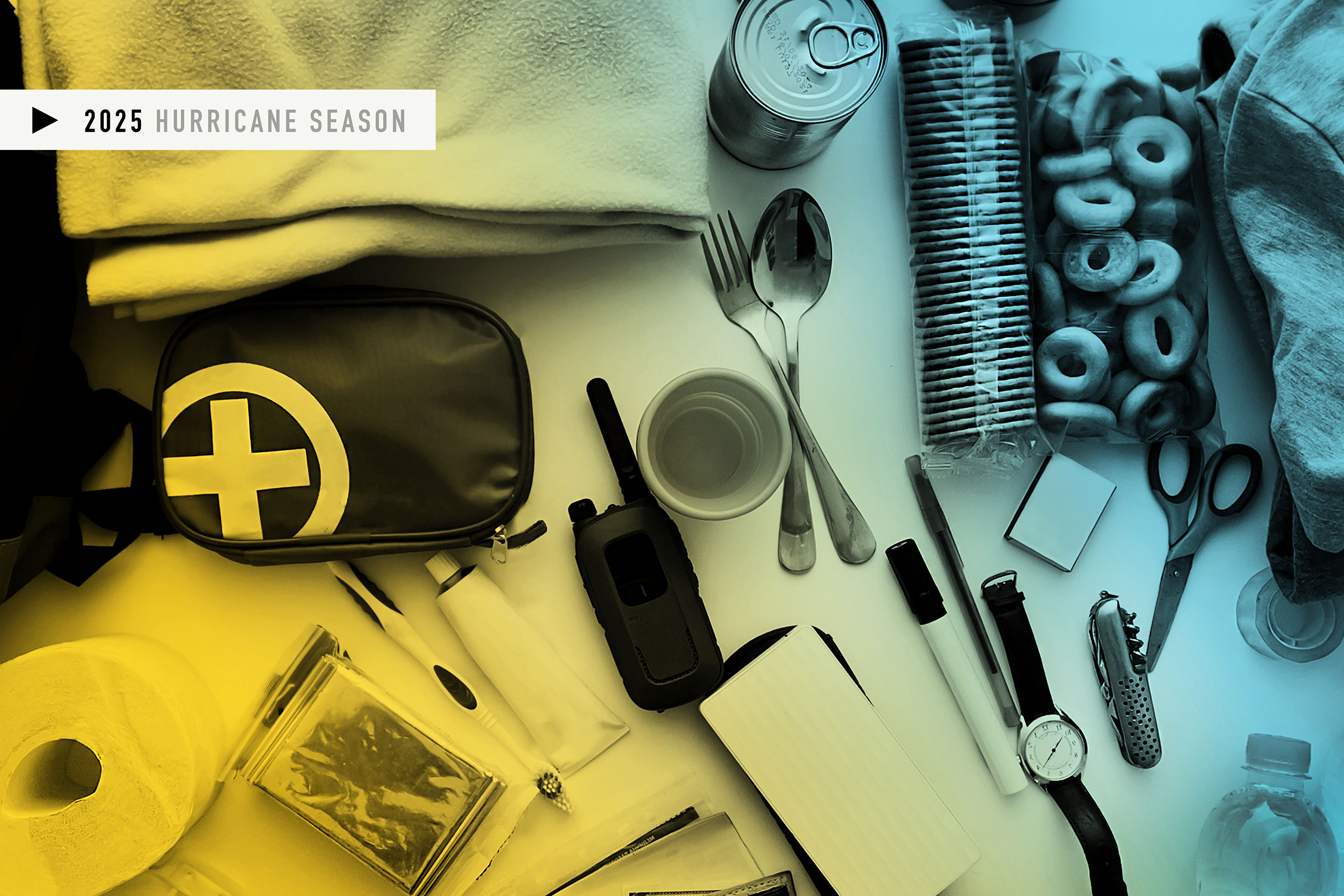How a Small, Scrappy Houston Nonprofit Redefined Hurricane Recovery

Community-led West Street Recovery helps the northeast region of Houston be more resilient to hurricanes.
After the rains of Hurricane Harvey pummeled down in late August 2017, a cluster of friends living on West Street in the Northside, witnessing the inadequate response from larger institutions, took it upon themselves to ferry residents in their trucks and inflatable kayaks across treacherous waters to reconnect them with loved ones. As their efforts gained momentum, transporting survivors turned into distributing much-needed meals and other resources.
What started as a few friends coming together to help their community in the aftermath of a devastating natural disaster has since evolved into a grassroots organization. West Street Recovery (WSR) continues to be a force for climate justice and storm recovery six years after Harvey.
Focusing on four zip codes in northeast Houston, WSR provides a variety of services, from rebuilding homes torn apart by severe weather to providing financial assistance. And as Houstonians gear up for this year’s ongoing hurricane season, WSR is busy giving locals the tools they need for any potential disasters in the form of trainings, hurricane prep events, and more.
Andrew Barley, codirector of WSR’s rebuild initiative, started as a volunteer during Hurricane Harvey. He believes the nonprofit is different from conventional disaster recovery organizations because it emphasizes residents’ input in how hurricane infrastructure is implemented.
“We're horizontally structured, meaning that there is no boss and we make all of our decisions by consensus minus one,” Barley says. “We’re community-focused not just in ensuring that community members develop their responses required to deal with natural disasters but also that they're in charge of what their future looks like. So, a big part of our work focuses on community-led activities.”
The group also operates out in the open. Weekly Zoom meetings are accessible to the public, providing a platform for knowledge sharing and interactive discussions on disaster preparedness. Those living in areas of Houston outside WSR’s focus neighborhoods are encouraged to reach out to the organization and schedule visits to observe its active hurricane precaution plans.
WSR serves northeast Houston through several different initiatives. The rebuild team helps residents repair their homes that have been damaged by storms, the disaster prep team equips people with resources for future hurricanes, the nonprofit’s research team does studies on neighborhood infrastructure needs, and their organizing team works with survivors to create structural changes through political advocacy.

Members of West Street Recovery work on disaster prep.
In 2018, the organization doubled down on its commitment to fortify the local community by creating the Northeast Action Collective (NAC), a subdivision of WSR made up of group members and northeast Houston residents that functions as an oversight body for the nonprofit's activities.
“For any initiative that West Street promotes for northeast Houston, we use the Northeast Action Collective as sort of a sounding board to see if it is something the community actually wants or something that we're trying to push on the community,” Barley explains.
In addition to oversight, members of both NAC and WSR work together to create joint programs and research. The disaster hub houses are a prime example of this cooperative effort. Select members of the northeast Houston collective are chosen to have their homes and garages outfitted as emergency shelter points where others can gather after severe weather to recharge their phones, warm up, and get valuable supplies like food and drinkable water in the midst of the chaos. Another prominent joint effort involves an annual assessment of the flood infrastructure in northeast Houston. In partnership with the NAC, WSR addresses areas with deficient drainage systems, undertaking cleanup operations to enhance the area's resilience against flooding.
Codirector of research Brenda Tijerina, who has been with WSR since the beginning of 2023, believes the organization’s accomplishments across northeast Houston are in big part due to the public policy advocacy of the NAC, including filing legal complaints and documents against the city when necessary.
“[The NAC] does a lot of research as well,” Tijerina says. “They are the ones that show up to city council to give public comments and advocate for themselves after everything that we've learned.”
The group’s recent, months-long campaign directed at the city of Houston helped secure over $20 million in the 2024 budget for stormwater drainage initiatives and other climate infrastructure programs specifically aimed at predominantly Black and brown neighborhoods.
Rolling into late August, the hurricane season that began in June is now ramping up with increased activity in the Gulf. As Houstonians all over the city are getting ready, so is WSR. The nonprofit organized a summer disaster preparedness event that taught residents practical lessons on using generators, assembling essential supplies for severe weather scenarios, filling sandbags, and more. Additionally, the organization is actively working to obtain federal-level disaster certification and CPR training for residents of northeast Houston. Expanding the network of hub houses in the area is also in progress, with half of the new additions being outfitted with solar panels and Tesla battery packs. These new hubs now focus on the most vulnerable populations in the northeast, prioritizing older people and those with limited ability to evacuate during disasters.
But Houston’s vulnerability to storms isn’t limited to specific neighborhoods and populations. Tijerina urges every Houstonian to prepare for possible hurricane-related damage, regardless of whether they feel secure.
“I think a lot of people are at risk. Everyone should have their own preparation plan, like where they would evacuate if something were to happen, like having your documents backed up,” Tijerina says. “It's a common misconception that just because you haven't flooded you're not gonna flood.”




